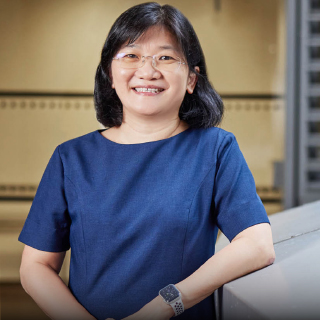WORDS OF
APPRECIATION
If we don’t protect you, you can’t protect us. On behalf of all Singaporeans, I thank you all. We are with you and will give you our fullest support.
A SIMPLE “THANK YOU”
MEANS THE WORLD

At the height of the pandemic, the challenge was providing quality care without compromising patients’ safety. It could be stressful working at the acute psychiatric ward as some of our patients were unable to fully comprehend the various measures: Swabbing, isolation, and the no-visitor policy that had to be instituted at times. It was also important that we managed patients’ and their next-of-kin’s concerns, especially with COVID-19 infection control measures and strict guidelines that evolved constantly with the pandemic.

What kept me going was seeing my patients well cared for, happy and healthy – this truly gives me a sense of fulfilment and joy. They never fail to show their gratitude and appreciation through repeated ‘thank yous’ with smiles on their faces in our daily interactions.

SITI KHATIJAH IBRAHIM
ASSISTANT NURSE CLINICIAN, INSTITUTE OF MENTAL HEALTH
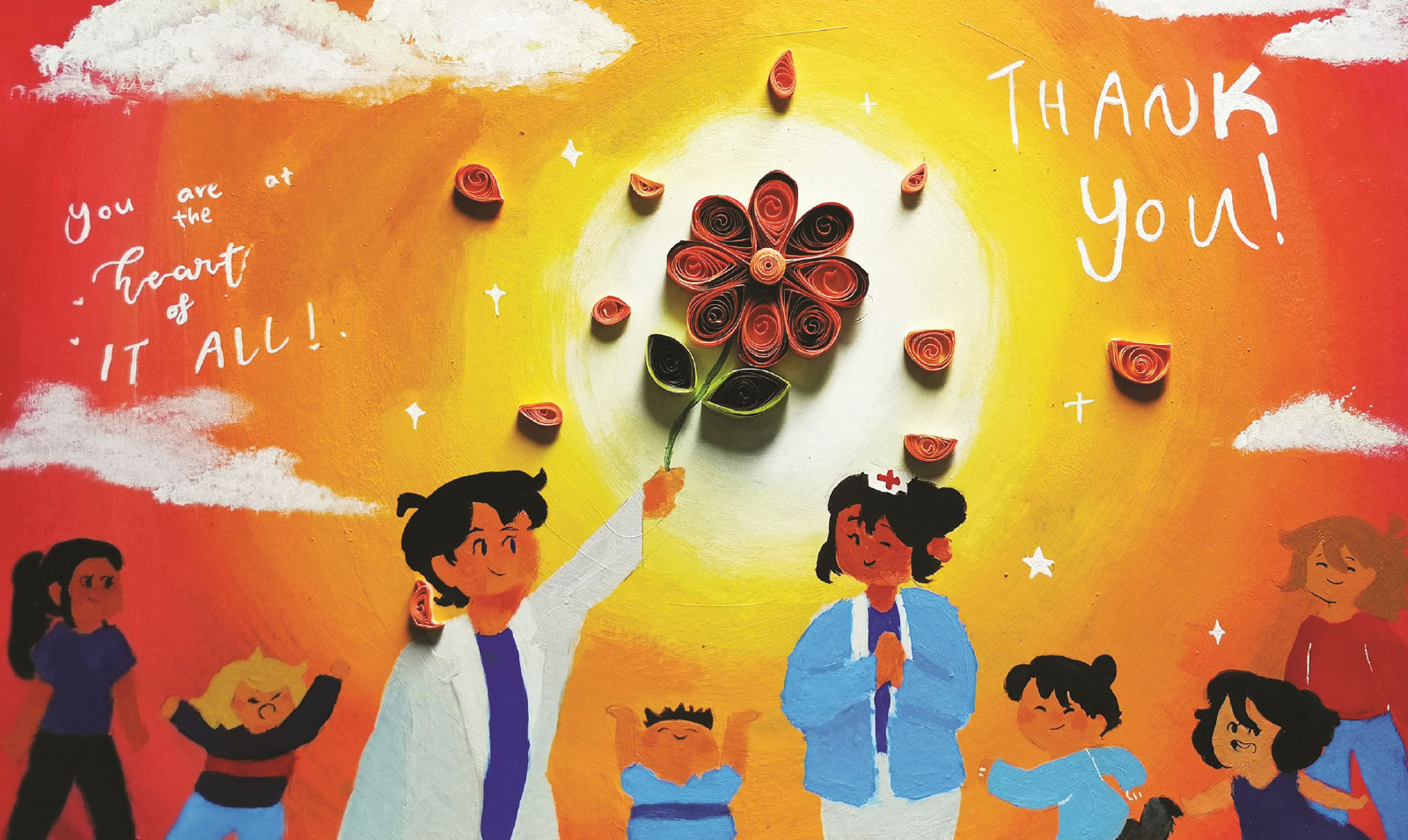
THE HEART IN HARD WORK

During the pandemic, helping family members to manage grief became even more important in my work. There were times where we had to have conversations about death with patients and their loved ones.
I recall attending to a case in the Intensive Care Unit where a patient’s daughter was grief-stricken for not sending her mother to the hospital earlier. The patient was not able to communicate at all as she was in a comatose state. Nevertheless, it was important for us to let the daughter know that she could still talk to the patient as when one approaches the end-of-life, hearing is often the last sense to go.
Although I was not able to hear exactly what the patient’s daughter said, I witnessed how the daughter’s demeanour changed and the patient’s breathing became less laboured. Later, I understood from the patient’s daughter that her parting words were a promise to the patient that she would reconcile with her estranged brother.
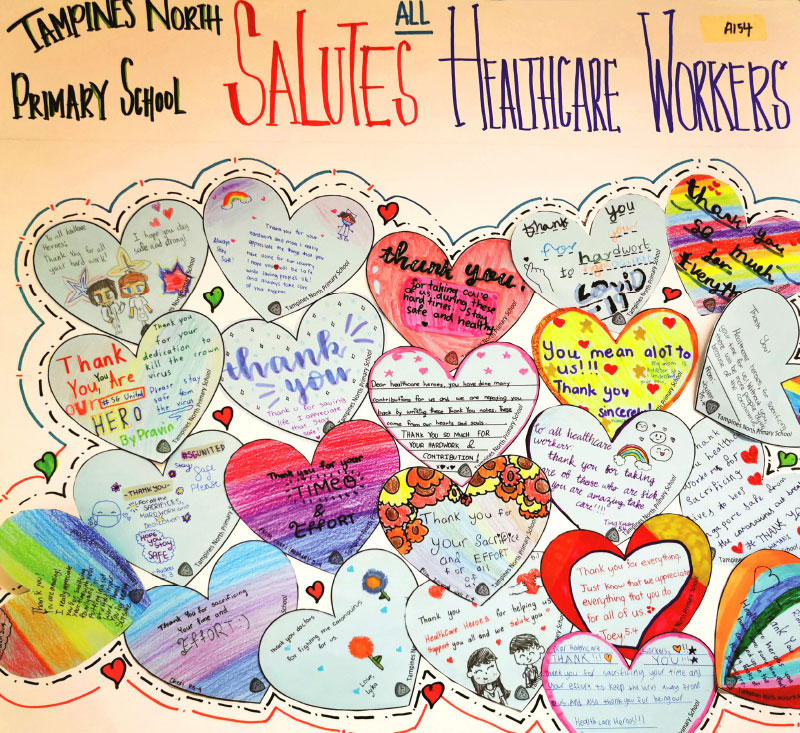
When I tell people that I work at the National Centre for Infectious Diseases, the response that I always get is that being a frontliner must be hard work. Instead, I see it as ‘heart work’. Of course, I also had the invaluable support of my husband and my colleagues. They made the long days more bearable. Receiving food as a form of appreciation from members of the public and organisations was something that we looked forward to as when the going got tough, it felt comforting to know that we are also being cared for.

SAMANTHA KOH AN QI
MEDICAL SOCIAL WORKER, NATIONAL CENTRE FOR INFECTIOUS DISEASES
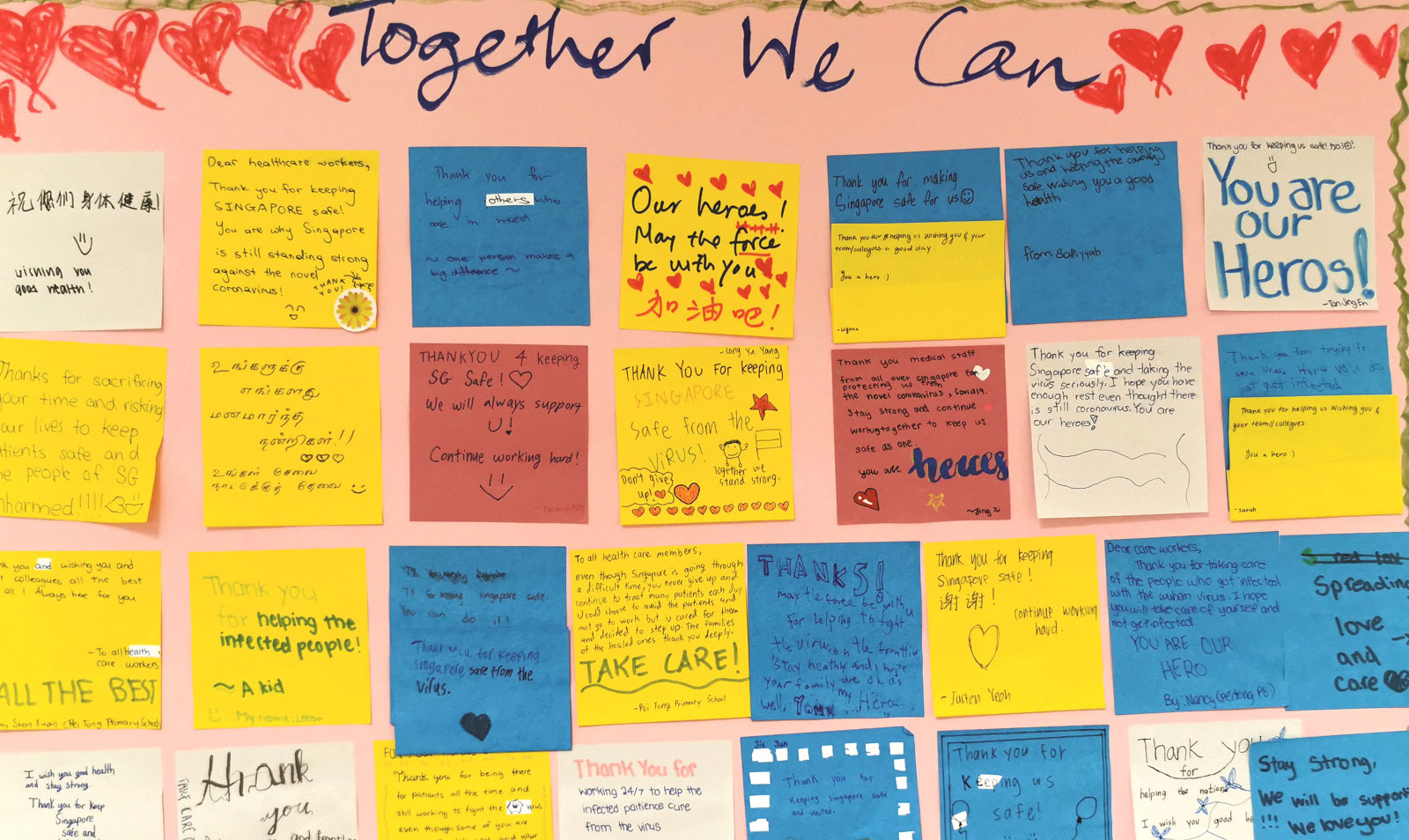
LITTLE THINGS THAT KEPT US GOING

There were many challenging moments we experienced during the COVID-19 crisis, including having to wear an N95 mask and PPE for long hours. We also had to adapt constantly to the changing healthcare policies and protocols, such as swabbing protocols for PCR tests and ARTs.
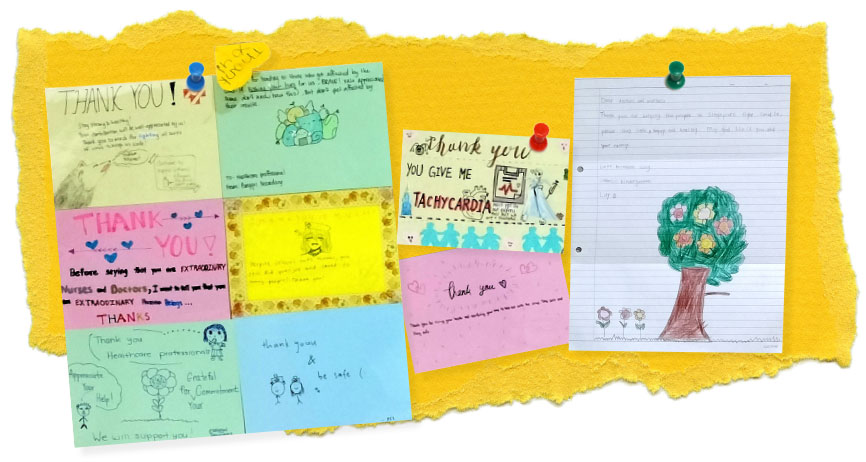
What kept me going was my belief that it is our duty of care as nurses to tend to our patients’ needs regardless of the situation.
It also helped that there was great teamwork and a high level of commitment from the other healthcare professionals we worked with.
I appreciate every treat and thank-you card I received from doctors, other staff members and patients’ families. These little gestures made it easier to carry on when the going got tough.

ZHU JING
SENIOR STAFF NURSE, MOUNT ALVERNIA HOSPITAL
OUR
FULLEST
SUPPORT
“We truly appreciate your contributions, hard work, and sacrifices, and we will do everything we can to support you during this difficult time.”
PLANTING SMALL SEEDS OF GRATITUDE

[I worked in the Vaccination Operations Task Group, encouraging members of the general public to go for their vaccinations.] One patient that stood out to me was an older gentleman with a walking stick who came for his vaccination. He started asking us a lot of questions, and even after we had assured him that the vaccine was safe, he asked the doctor a second round of questions. Eventually, he got his shot. But what surprised us the most was that he returned half an hour later, not to ask questions, but with a bouquet of flowers for the doctor. He was genuinely thankful that we took the time out to explain things to him so patiently.

MICHELLE CHEN
MANAGER, VACCINATION OPERATIONS TASK GROUP
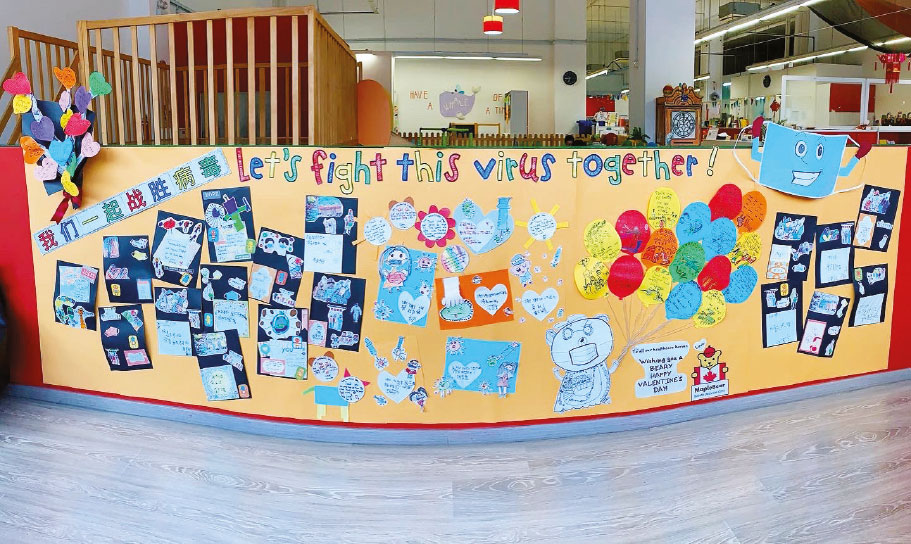
Photos: Institute of Mental Health; National Centre for Infectious Diseases; Singhealth; National Healthcare Group










